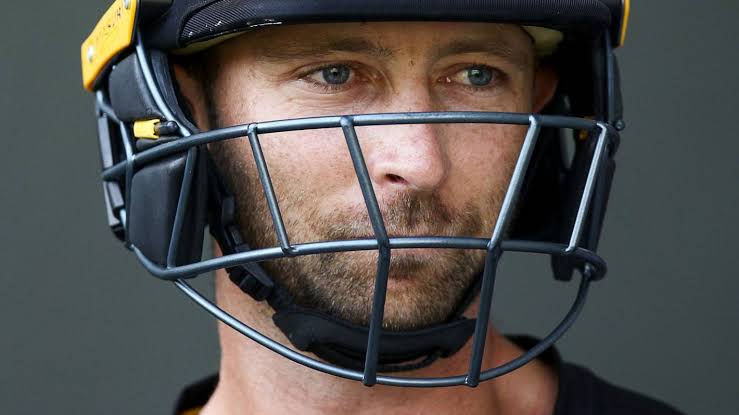South Africans seeking to turn Devon Conway’s loss to New Zealand into a race issue fail to acknowledge what is self-evident – his gift just bloomed later than most and in an environment which facilitated that. Let’s celebrate a wonderful talent, not wrongly denigrate a system, writes RYAN VREDE.
First, a focus on what actually matters.
Conway’s debut double century was lauded throughout the global cricket fraternity. It was a feat made more special given it was scored against one of the world’s elite bowling attacks and at the Home of Cricket, Lord’s.
His innings was a study in simplicity of technique. Indeed, in a modern game populated by players with complex techniques, Conway’s is a throwback to a bygone era in Test cricket. He is relatively still at the point of delivery, moving only to align himself in a manner that gets him into the best position to make the best decision for the delivery he is facing.
Critically, it is a beautifully effective method and his powers of concentration in execution of that method were immense at Lord’s.
In time, and armed with more footage to analyse, New Zealand’s opponents will expose weaknesses in Conway’s technique. Even the most elite batters have them, and all elite bowlers find ways of exploiting those weaknesses.
At that point, those batters have to find ways of remedying these deficiencies. Those who do so successfully build long Test careers. Those who don’t, fade from memory. This is the next challenge for Conway and one I hope he masters, because even though he wears the black fern on his chest, he is a son of South Africa. And, for me, that’s reason enough to celebrate his professional success.
I also think Test cricket needs Conway’s technical orthodoxy as a reference point. The top-ranked Test batsmen in the world all have varying degrees of unorthodoxy. In some, that unorthodoxy is more pronounced – Steve Smith and Marnus Labuschagne chief among those.
Others express that unorthodoxy in more subtle ways – like Joe Root and Virat Kohli’s ability to hit balls from off-stump through mid-wicket with ease. In this context, Conway serves as an important reference point for young players who may not have the depth of talent to explore unorthodox routes to success.
Indeed, the only thing unorthodox about Conway is the path he followed to international success. This has been a central theme this week, with a clutch of cricket writers tracing his South African roots and detailing the decision for him to leave and pursue a career in New Zealand four years ago.
His farewell gift to South African cricket was a double hundred, scored for the Lions in a domestic four-day match. This has been latched on to by many in South Africa to support an imagined snub, with many arguing that the quota system denied him.
It didn’t. Conway averaged 21.29 across 12 matches for the Lions when he left for New Zealand. He’d simply not done enough to advance his cause for a regular gig with the Gauteng franchise.
He admitted as much in an interview with stuff.co.nz in November 2020. Asked whether the quota system had stifled his rise, Conway said: ‘I didn’t quite knock the doors down when I was playing. It was my own fault, really.’
He reinforced that speaking to ESPNcricinfo.com in May, explaining: ‘A year or two before I decided to move to New Zealand, I felt like my career wasn’t really moving forward. I potentially wanted to give myself the best chance of playing international cricket, but unfortunately at the time I didn’t perform as well as I would’ve liked to. I just thought of trying to change things up.’
In New Zealand, Conway found a professional environment that stimulated him. If there’s a criticism to be made of South African cricket, it is that no elite coach was able to identify what was at that stage a relatively dormant gift, and serve as a catalyst for that gift blooming sooner. This isn’t uniquely South African problem.
Something must also be said for the role of desperation in Conway’s rise. He arrived in New Zealand having all but abandoned hope of a professional career in South Africa. He’d sold everything prior to departure, and arrived in Wellington with only a gig as a player/coach role with Victoria University Cricket Club certain and a loose arrangement to coach schoolboys in and around Wellington.
The rest he was forced to work for and, notwithstanding what his rise suggests, is a man with bags of self-belief. One imagines the fear of failure in the early days was a powerful motivator for improvement.
This is not to say Conway wasn’t desperate to be the best version of himself at home. However, with the stakes raised, he was forced to call on the singular focus, temperament, unrelenting work ethic and insatiable hunger for runs that would later characterise his innings at Lord’s.
These are qualities that some professional cricketers have at 19. Others, like Conway, acquire them in their mid-20s.
Conway simply found what he needed in New Zealand and, in turn, New Zealand found a batsman of immense potential. Time will reveal how big a loss Conway is to South Africa. Early signs are it will be a significant one. But that loss isn’t attributable to a system that excluded a white cricketer. It excluded an underperforming one.
We need to address the deficiencies in that part of the system, and understand how to identify and invest in high-potential late bloomers so that the next Conway is not missed.
If there’s going to be a Conway inquisition, let it be centred on that.







